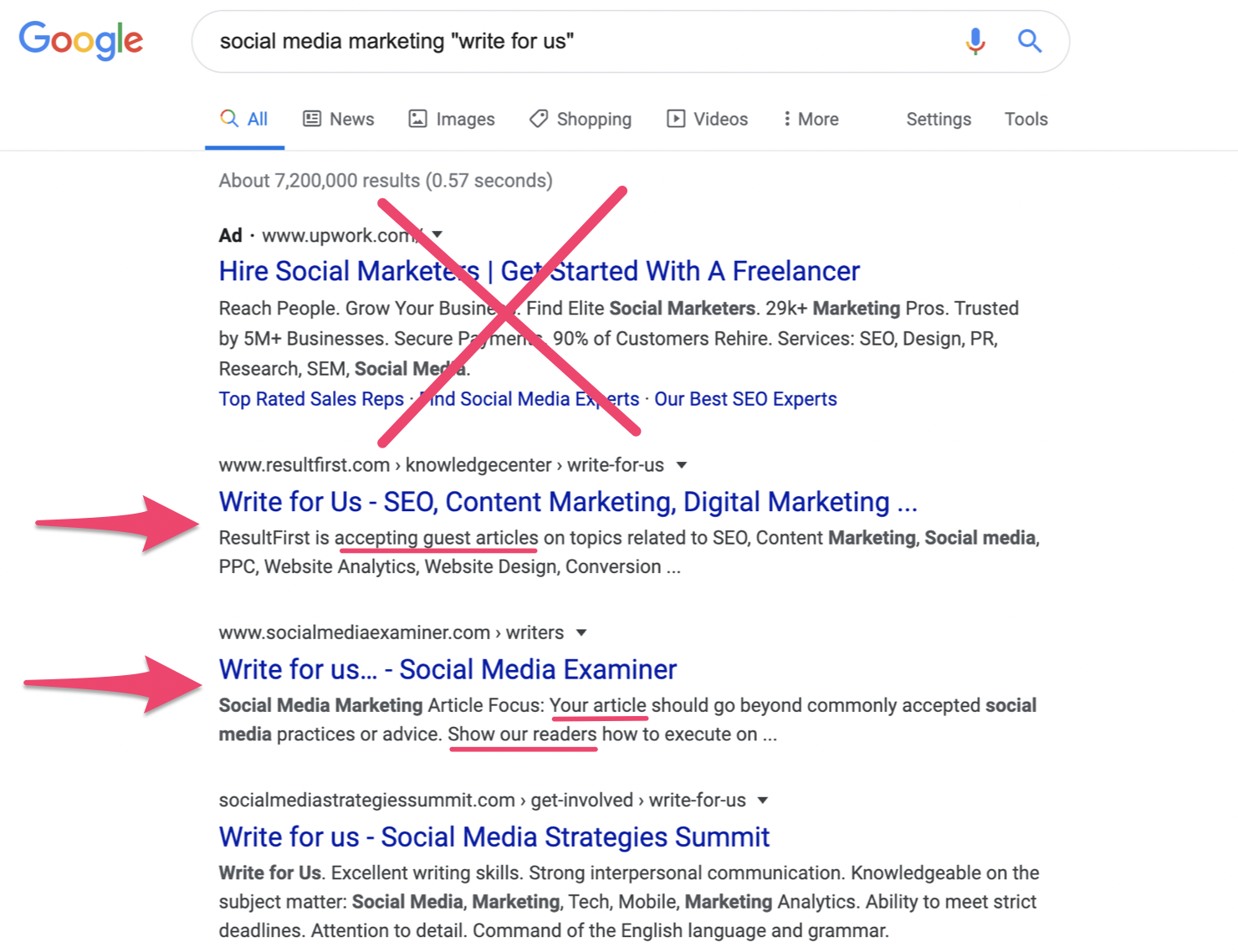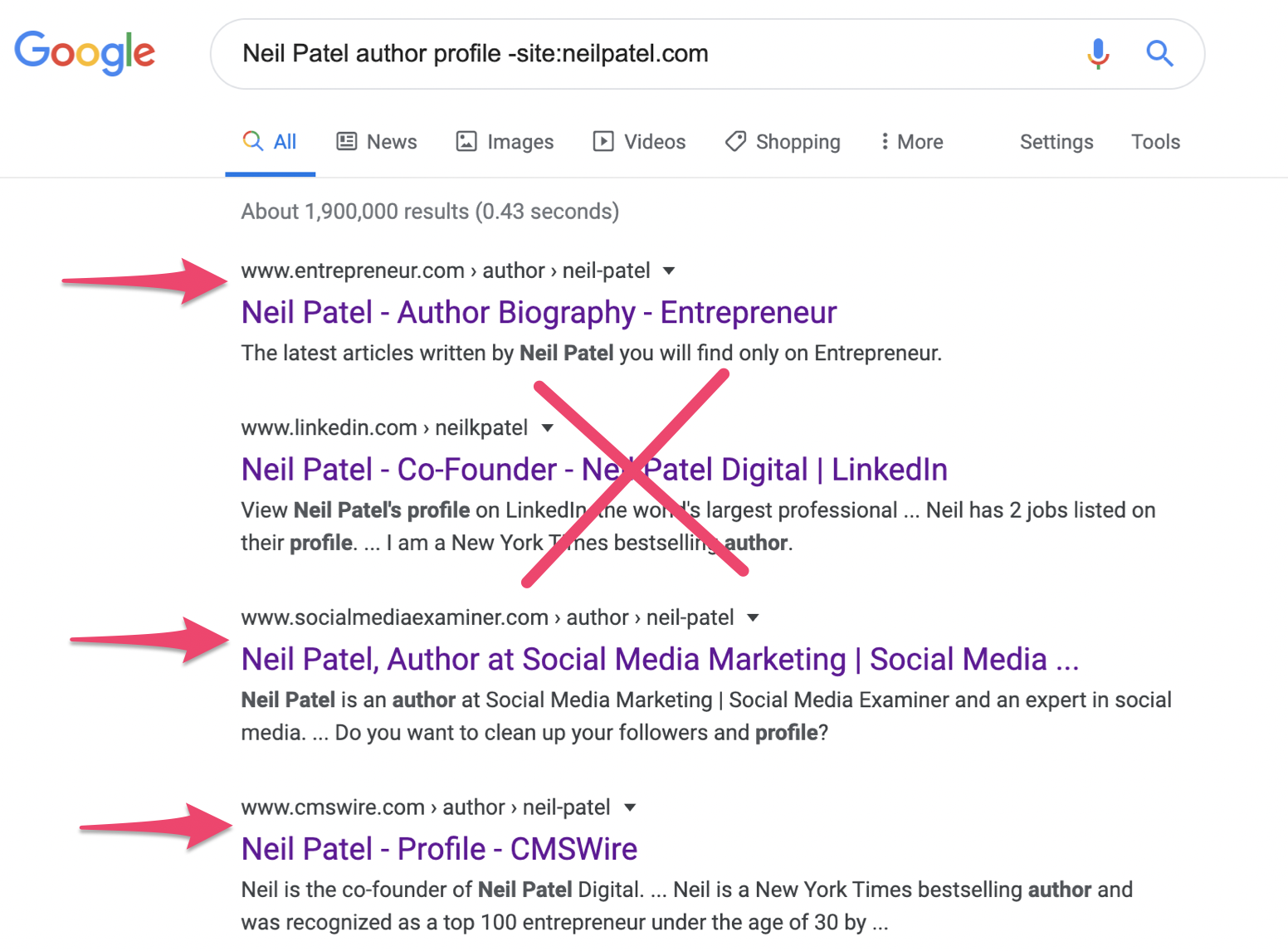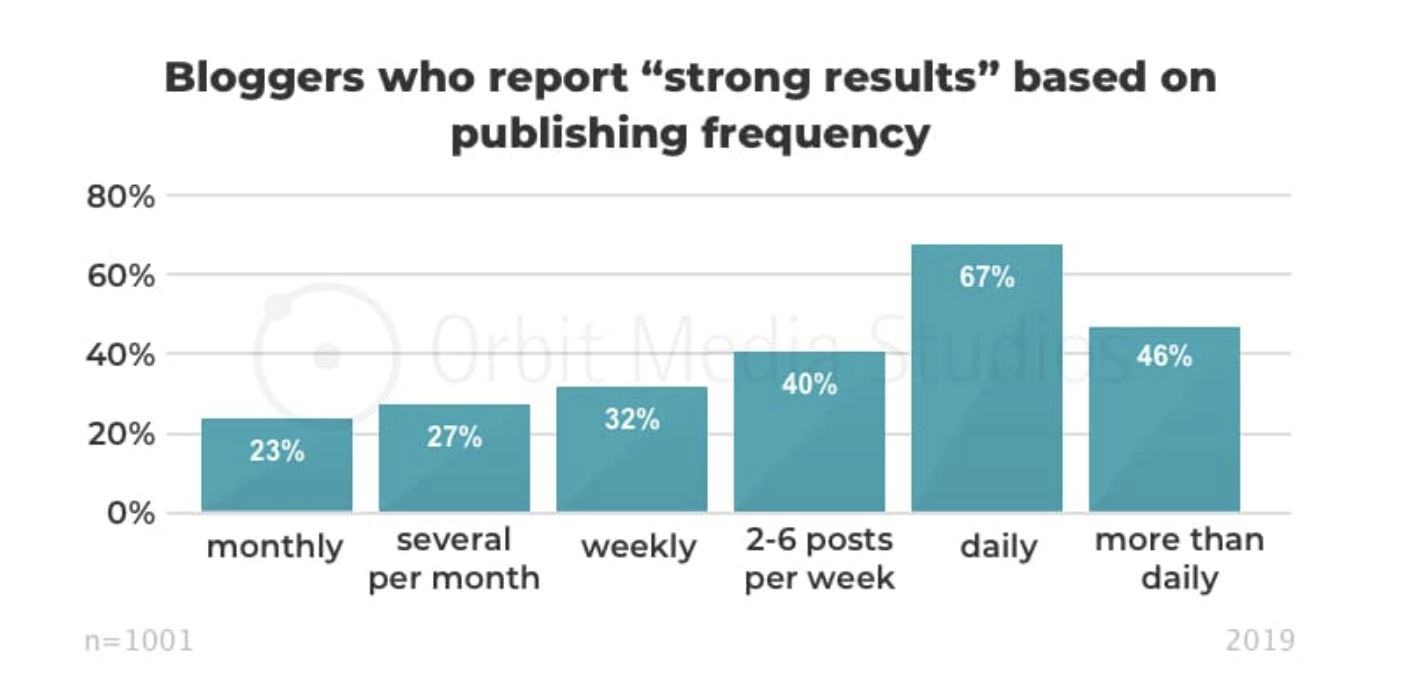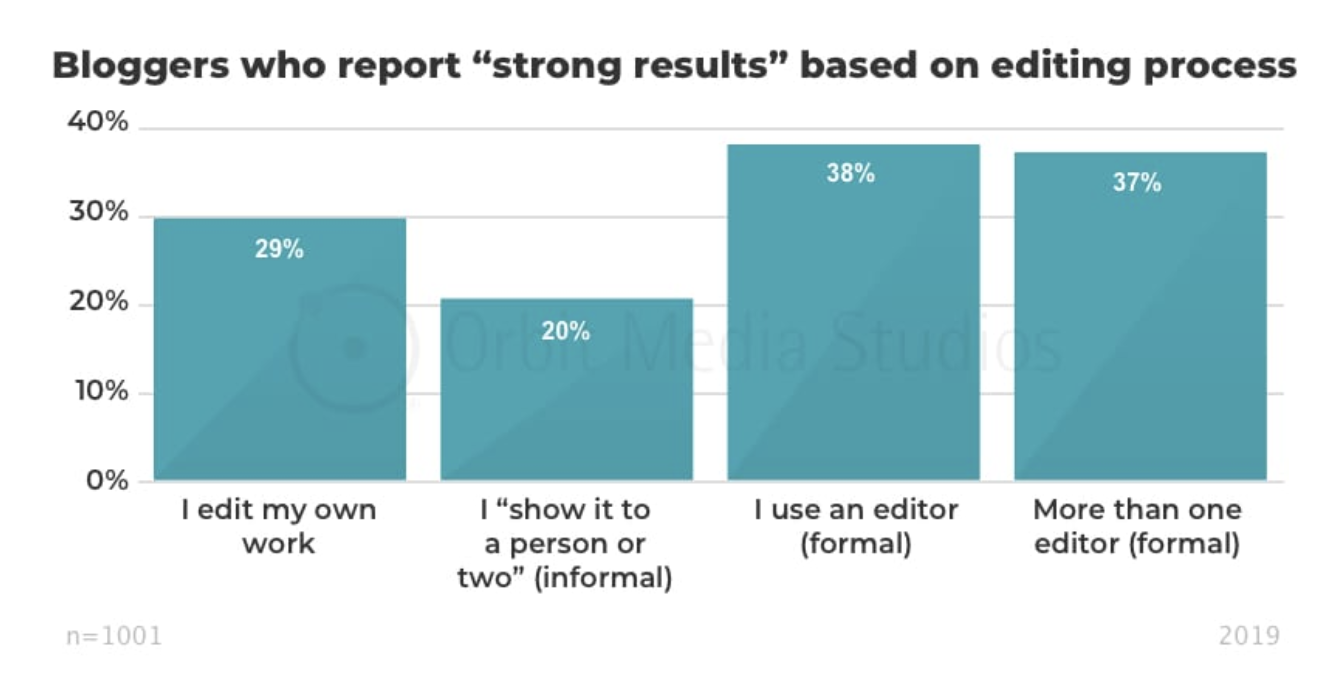Discover what really works in digital marketing in a free 15 minute call. If you want better rankings in Google, meaningful social media results and to break the pattern of failed campaigns, talk to John McDougall today. John has helped hundreds of businesses of all sizes grow their web presence and authority since 1995. Become … Schedule Free Call
Top 10 Tips to Tailor Your Content to Perfection

Writing great content for your brand is a critical key to success, but it’s also one of the most intimidating. Even if you’re a seasoned writer, there’s always room for honing your craft. Here are 10 top tips to tailor the content you write to absolute perfection, whether you’re writing for your own blog or a paid project.
1. Write In Multiple Stages
Good writing takes time. It’s extremely difficult to create fluid, error-free content that follows a linear thought process all at once. Instead, the highest-quality copy comes from a multi-stage writing process that leaves time in between outlining, drafting, editing, and proofreading the content to “reset” the brain.
2. Improve Your Word Use
Go through your piece to look for places you can upgrade your language. Use a thesaurus to find richer, more descriptive words for basic or plain phrases, but be careful not to increase the reading difficulty beyond that of your target audience.
For example:
Getting professional content marketing help can improve your website rank and traffic stats.
Can be written as:
Getting experienced content marketing help from a professional can boost your website rank and drive even more traffic to your offers and promotions.
3. Cut the Fluff
Your content should be short, sweet, and to-the-point. When creating long-form pages, every section you include should add some kind of value to the overall post. Avoid writing fluff just for the sake of adding length to your content – this tactic is easily detectable by search engines and will likely end up getting you penalized.
4. Proofread After You Edit
Many people misunderstand the difference between editing and proofreading. Contrary to popular belief, these aren’t the same thing and shouldn’t even be done at the same time. Editing involves looking at sentence structure, word use and the thought process behind the content to make sure each sentence adds value and is clear and easy to understand.
Proofreading is the process of looking for grammatical errors, punctuation and spelling mistakes, typos, and other simple issues within a piece of content. You shouldn’t look for punctuation errors while you’re assessing sentence structure and syntax, because you’re more likely to miss some of both.
Instead, edit your content first without regard to grammar or punctuation. Focus solely on the meaning of words you’re using, how sentences are laid out, and how readers will move from one concept to the next throughout your writing. Then, take a break and come back to proofread for mechanical errors.
5. Focus On Your Headlines
Headlines are arguably the most important part of your content. Web content is rarely read in full – most users scan or skim a blog or news article for the main points, which are usually identified in the headlines. Write your headlines to really pop. If you took away the text copy and left only the headlines, would your readers come away with the same core information? Make sure they can.
6. Double-Check the Style Guide
If you’re writing for a publication or brand that uses a style guide, make sure to double-check everything before submitting your content. This helps ensure that language, punctuation, tone, and voice are similar between different pieces of content created by different writers.
If you’re writing for your own brand, use this opportunity to establish your style guide. Keep track of your preferences for things like Oxford commas in a document or spreadsheet that you can send to others who may write for your brand in the future.
7. Pay Attention to Passive Voice
When editing, look for instances of passive voice and change it to active. In most cases, passive voice is seen as a weaker, less assertive way to write an expression, but occasionally it’s useful when a writer wants to emphasize the action taking place instead of the subject of the action.
For example:
Yesterday’s blog wasn’t posted by the intern and the website rankings have been affected.
Can become:
The intern didn’t post yesterday’s blog, which affected the website rankings.
8. Vary the Length & Structure of Your Sentences
Your sentences should not be the same in length and structure throughout your blog post.. Instead, make sure they vary to keep readers engaged.
For example:
The blog we posted got a lot of traffic. It was a great conversation starter. A lot of people on social media shared the blog. This has had a significant positive impact on our brand.
Can be written as:
The latest blog we posted got tons of traffic. It was a great conversation starter and people shared the blog across social media, which had a significant positive impact on our brand.
9. Be Succinct
During the editing process, look at how many words you use to explain something, whether it be a product description or a specific step in a how-to guide. Don’t be verbose – instead, choose fewer words that have more meaning.
For example:
The little girl was happy and excited about the people coming over to her house to celebrate her birthday, but the big cake box from the bakery was heavy and hard to carry.
Can become:
The small girl was thrilled for her birthday celebration, but carrying the giant bakery cake box home was cumbersome.
10. Have Patience
One of the most important things to remember when creating content is to be patient with yourself and the process. Give yourself plenty of time to go through each stage of writing and to read over it a few times when you’re completely finished.
Get More Writing Tips & Help With Content Marketing Today
At McDougall Interactive, we know what makes good content. We can help you learn the tricks of the trade so you can create winning website pages and blogs that drive qualified leads to your business. Call today to learn more at 877-623-4291 or book your free strategy session now.
How to Develop an Effective Law Firm Content Marketing and SEO Action Plan
Date and Time: Wednesday, July 21, 2021 from 12:00 noon – 1:30 pm
FREE LUNCHTIME PROGRAM
This program is online only.
Learn about:
- Content Marketing
- Making SEO (Search Engine Optimization) Work for You
- How to Start a Podcast and Optimize your YouTube Videos
Faculty:
- John McDougall, President, McDougall Interactive, Inc.
- John Maher, Director of Multimedia/Digital Marketing, McDougall Interactive, Inc.
What used to work in Content Marketing and SEO (search engine optimization) just a few years ago will not work today. Learn how to make 2021 your most profitable year ever by getting consistent leads from Content Marketing and SEO and by positioning your firm as thought leaders. Join John McDougall and John Maher from McDougall for a free 60-minute digital marketing webinar.
We will cover Search Engine Optimization and creating an SEO Action Plan, reviewing the essential tools that are used for the research and implementation of your SEO plan, and how to make your web pages faster loading to give your viewers a better presentation.
Learn how to create content through Podcasting and Video, including how to start and record a podcast, and how to optimize your YouTube channel for search.
How to Find Guest Posting Opportunities

The benefits of guest blogging are tremendous for anyone with a website. I can’t name a better way to build high-quality backlinks and establish authority online.
Once you’ve created enough valuable content on your own website, it’s time for you to start looking for other sites that will publish your ideas.
Finding sites that accept guest posts is easy. But the web is full of spammy and low-quality sites that will publish any submission—stay away from these. Those websites will ruin your reputation and get you penalized by Google.
Discovering the right guest posing opportunities will require a bit more effort.
I created this guide using proven methods for finding the best guest blogging opportunities for any website. Regardless of your niche, brand, industry, or website type, you can build authority by following this process.
Leverage Your Network
As a kid, did you ever have to sell something as a fundraiser for your school or sports team? Knocking on front doors in your neighborhood selling candy, t-shirts, raffle tickets, or whatever.
It’s always easier selling to your grandparents, aunts and uncles, friends of your parents, neighbors, and basically anyone else who knows who you are.
This same analogy can be applied to guest posting. Instead of selling goods for cash, you’re exchanging content for links. Always take advantage of the resources at your disposal.
Reach out to your friends in the industry. Email any freelancers or ghostwriters that you’ve used in the past. Send a text to your point of contact at agencies you’ve worked with.
If these people don’t have their own website that’s a good fit for your guest blogs, they have connections to other websites that do. Maybe your old college roommate has a spouse that works at HubSpot. Or perhaps a golfing buddy has a niece or nephew that’s the Director of Marketing at a Silicon Valley tech company.
These types of connections can lead to excellent guest posting opportunities.
Google Search Strings
Believe it or not, Google is actually one of the best tools for finding guest posting gigs.
But you’ll need to dig a little deeper than just searching for, “where can I guest blog?” This will bring you to those spam sites that I referenced earlier, so we definitely don’t want that.
Instead, you’ll need to use a series of different search strings to find relevant and high-quality sites that publish guest posts. These are some of my favorites:
- “Keyword” + “Guest blog guidelines”
- “Keyword” + “Write for us”
- “Keyword” + “Guest post submission”
- “Keyword” + “This article was written by”
- “Keyword” + “Become a contributor”
- “Keyword” + “Submit your post”
- “Keyword” + “Want to write”
Here’s an example. If you’re a digital marketer, you might want to search for a keyword like “social media marketing.” Check out the SERPs when I pair that with “write for us.”

Not everything on this page will be a viable guest posting option. You can usually tell if it’s a legitimate opportunity by reading the meta descriptions, as opposed to clicking each link.
Ignore the ads at the top of the page. Start with the organic results, since these sites will have the highest domain authority. As you can see from what I’ve highlighted above, those first two organic results are perfect guest blogging opportunities.
The third result looks like a company is trying to hire a writer. You can easily just skip over that and continue scrolling.
Repeat this process for the first two pages of Google results for each search string that I’ve listed above. Then continue these steps for other relevant keywords in your niche.
When you’re done, you’ll have a dozens of potential opportunities on your list.
Identify Top Influencers in Your Niche
Depending on the industry you’re in, this will be easier for some of you than others. The idea here is to find out what sites are publishing content from the most influential people in your industry. Those are the types of sites you want to guest post for.
Let’s continue with the digital marketer example. Some top names in this industry include:
- Rand Fishkin — Moz & SparkToro
- Justyn Howard — Sprout Social
- Neil Patel — NeilPatel.com
- Joe Pulizzi — Content Marketing Institute
To find guest blogs by these people, you need to type a unique search string into Google. If you just search their name, the majority of results will be content published on their own sites; we don’t want that. So use this string instead:
Name author profile -site:theirURL.com
This string tells Google to look for this person’s name and author profile but eliminates a specific URL from the search results.
Here’s what it looks like if we use Neil Patel as an example.

Aside from Neil’s LinkedIn profile, three of the four top results are all websites that he’s contributed guest posts to. These are websites that should all be added to your list.
It’s worth noting that Social Media Examiner appeared in our first example as well. Any site that comes up multiple times during your research should be highlighted as a top prospect.
Evaluate Your Opportunities
If you’ve followed the first few steps above, you’ll have a list of at least 50 potential guest blogging opportunities. But it’s unlikely that every site that you’ve found is actually worth reaching out to.
You’ll need to go through a vetting process to see which ones are actually legitimate. Use this checklist to narrow your list and eliminate sites.
- Spam and Ads — Visit each website and eliminate any that look spammy or untrustworthy. If it’s full of ads and appears sketchy, remove it from your list.
- Niche Category — Delete every website that isn’t related to your industry. Some sites will have a wide range of articles covering different topics. Use your best judgment to see if your niche is appropriately categorized.
- Recent Activity — You might find a landing page with guest post submission guidelines, but it’s possible that the page is outdated. Review the latest blog posts to see if the website is actually publishing content. If nothing has been posted in months, or the most recent guest blog was from years ago, take the site off of your list.
- Domain Authority — Don’t submit guest blogs to any website with a lower domain authority than your own site. Eliminate any website with a domain authority below 30. Ahrefs has a free authority checker tool that you can use for this.
- “Nofollow” — If you’re only guest posting to build domain authority with backlinks, you need to make sure that you’ll actually get credit for those links when Google indexes the content. Check the outbound links from sites on your list. Eliminate sites using “nofollow” tags on guest posts.
Don’t be too picky during this evaluation process. If you’re left with just a handful of sites in the end, it’s not going to benefit you.
You should aim to have at least 20 or 30 solid leads when all is said and done. This will still leave you with plenty of writing opportunities if half of those sites ignore your inquires.
Final Thoughts
The first step to building authority with guest posting is finding the right opportunities.
Just because a website accepts guest blogs, it doesn’t mean that it’s a good fit for your name and brand. You’ll need to dig a little bit deeper to find high-quality sites that are willing to publish your content.
Make sure that your own blog has plenty of high-quality content before you start pitching to other websites. The best guest posting opportunities will usually have the strictest guidelines, so you need to make sure that your content will qualify.
Webinar Dec 9th – SEO Action Plan for 2021

Part 2 of our webinar series is focused on Search Engine Optimization, and creating an SEO Action Plan for 2021, as well as reviewing the essential tools that are used for the research and implementation of your SEO plan.
In this webinar, we’ll cover:
- Why click-through-rate, time-on-site, and bounce rate are more important than ever
- The extremely high correlation between social signals and ranking position
- Why merely having keywords in your meta tags and copy is not nearly enough
- How the length of your content can affect your search rankings
- Why links are still significant, especially deep links to inner pages
- How your website load time can directly affect your search rankings, especially on mobile devices
- How The National Law Review and McDougall Interactive use essential SEO and digital marketing tools.
Although this webinar is aimed at law firms, 95% of the information is relevant to any industry, so we hope that you’ll join us. You’ll leave with 9 must-do action steps for success as well as a list of ridiculously great tools you can use to speed up your process and spy on competitors.
How to Build Authority With Guest Posting
 I’d recommend guest blogging to anyone. When done correctly, guest blogging is one of the best ways to build authority online.
I’d recommend guest blogging to anyone. When done correctly, guest blogging is one of the best ways to build authority online.
There are actually two types of authority that you can establish with guest posts:
- Brand authority
- Domain authority
Brand authority helps you position yourself as an expert in your industry. But publishing guest blogs on certain sites can also boost your domain authority, which increases your chances of ranking high in SERPs.
Guest blogging isn’t as simple as just writing articles for other websites. To be a successful guest blogger, you need to approach this strategy with a purpose.
As an SEO expert who has lots of experience writing guest blogs, I know what it takes to write a killer guest post. Here’s how you build authority by guest blogging.
Identify Your Goals For Guest Blogging
Why are you writing guest posts?
Believe it or not, some people aren’t able to answer this question. Sometimes people write a guest blog simply because a colleague or editor from another website asked them to.
But without clear goals, you won’t know what types of blogs are worth writing. Typically, there are three common goals when it comes to guest blogging:
- Establish yourself as an expert and well-known name in your industry.
- Gain exposure for your brand and website.
- Build backlinks for your website.
If you can publish quality content on the right websites, you can actually accomplish all three of these goals with one blog.
The first two require you to write for websites with lots of traffic and engaged audiences. But if you’re just trying to build backlinks for domain authority, you need to prioritize top-level domains.
Once you establish these goals, you’ll know which guest posting opportunities are worth pursuing.
Prioritize Your Own Blog
You can’t just go out and submit blogs or pitch ideas to random websites without focusing on your own website first.
Who are you? Why should another website publish your content? If you don’t add value to their website, they have no reason to consider you for a guest post.
The best way to showcase a portfolio of your writing skills is with the blog on your own website. Publish content on a weekly basis, at a minimum. According to a 2019 study by Orbit Media, bloggers who have a higher publishing frequency experience stronger results.

Make sure your website is clean, updated, and professional.
Other sites won’t want to publish your content and link back to your website if it looks outdated or spammy. That would be a poor reflection of their own site.
So don’t cut corners or write content just for the sake of publishing. Quality is important. Write for readers—not just for Google.
If you reach out to another website about a guest posting opportunity or apply to become a contributor, they will 100% read content that you’ve already written. In simple terms, if your writing sucks, they won’t consider you. So fine-tune your blogging skills before you submit anything.
Find the Right Guest Posting Opportunities
Don’t waste your time by pitching content to just any website. Make sure that the opportunities fit your goals for building authority.
In fact, I don’t suggest writing anything until you establish contact with an editor who approves the topic. Even if you have a great guest post, some sites won’t want it because they already have something similar that was recently published. Other sites don’t accept guest posts at all.
So how do you find the right guest posting opportunities?
Start within your network. Reach out to writers who contribute to other sites on a regular basis. Friends, colleagues, agencies, ghostwriters, and freelancers are all great resources. These people can give you an introduction to the right person at specific websites that accept guest contributions.
If you don’t have any connections or you’ve exhausted your network, turn to Google and search for things like:
- “Keyword” + “Guest post”
- “Keyword” + “Write for us”
- “Keyword” + “Guest blog guidelines”
Another way to find high-authority sites that accept guest posts is by profiling other bloggers in your industry. Search for a blogger with an established name on Google, excluding their website from the search results.
You can also use other tools like MOZ Link Explorer to reverse engineer your competition’s backlinks for potential guest posting opportunities.
Pitch Your Post
Once you find sites that accept guest submissions that fit within your goals, it’s time for you to make the first contact.
Research their audience and review the type of content that they usually publish.
Are they a B2B website targeting business owners? Or do they target general consumers? Is the writing style for beginners or experts? Do they prefer list posts, tutorials, or data-backed case studies?
When pitching, make sure you contact the right person and make the message personal. Don’t make the pitch about you and your goals. Explain why you think the idea would benefit THEIR website and THEIR readers.
Your guest post is not an advertisement for your business. You’ll get the exposure and backlink automatically.
Always pitch a handful of topics to the editor so they can pick which one they like best. This also eliminates lots of back and forth discussions, which can be unproductive for both parties.
Emphasize Quality
I try to make my guest posts better than the blogs published on my own website. That’s because someone else is reading my work and needs to approve everything before it gets published.
Your content will be seen by an audience who may not be familiar with you or your writing style, so these people might be a bit more critical than your loyal readers.
Spelling and grammar mistakes won’t be fixed by the website’s editor. Your work will just be rejected. Make sure you follow any formatting, guidelines, or instructions given to you by the website you’re writing for. Consider having someone review your work before you submit it.

In a perfect world, you can become a contributor to major publications instead of just writing the occasional guest post. Quality speaks for itself. If your content is engaging and a good fit, you can try to set up an arrangement for a monthly or quarterly contribution.
You want the content to perform well for that website because it’s a good reflection of you and your work. So share the post on your social media platforms and with your email subscribers once it’s published.
Final Thoughts
Guest blogging is my favorite way to build authority.
Not only will this help establish your name as an expert in your industry, but it can boost your domain authority for SEO as well.
If you’re ready to take your guest posting strategy to the next level, make sure you follow the tips that I’ve described in this guide.
- 1
- 2
- 3
- …
- 30
- Next Page »


